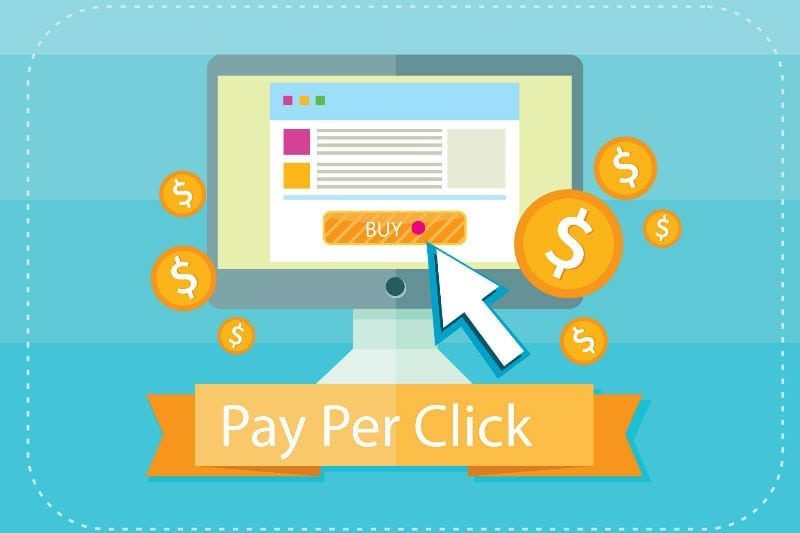 Reading Time: 3 minutes
Reading Time: 3 minutesPay-per-click (PPC) advertising is one of the most popular forms of digital marketing on the web. It enables marketers to buy the attention of target users instead of struggling to win them over organically. PPC marketing works seamlessly with search engine advertising methods like Google AdWords.
To make the most of your pay-per-click investment, you must optimize your PPC strategy. Otherwise, you might spend money without sealing conversions. Achieve profitable PPC optimization with a few key tests. Campaign testing establishes performance benchmarks, measures the success of your efforts, and helps you improve in the future. Try these three tests to optimize your latest PPC campaign.
Review Keyword Performance
The success of your PPC campaign depends on the keywords you choose to bid on. Choose keywords carefully, focusing on high-performance keywords in your niche. You may believe you’ve selected the perfect keywords for user conversion, when really they are falling flat. Continually check your keywords to see how they are performing. You may need to replace or alter your PPC keywords for optimization. Here’s how to assess keyword performance:
- Make sure your campaign has run long enough to collect accurate data on your chosen keywords. Wait at least a few weeks before deciding on the fate of a keyword. After just a few days, you will not have enough information to accurately decide on the performance of the word.
- Check the data to see how the keyword has been performing for your PPC campaign. If the numbers aren’t impressive over a decent period of time, it may be time to switch up your strategy and bid on different words.
- Figure out why the keyword is failing. There are several reasons your keyword might not be performing as expected. Your bid might not be high enough to compete with others in your industry. The word may have low search volume. It may be too broad to be relevant to target buyers.
Once you identify the issue with your keyword, choose to fix the problem or replace the keyword altogether. Perform keyword checks regularly for true PPC optimization. Periodically review your keyword performance and tweak your bids to stay ahead of the competition. Stay vigilant – keywords can change at the drop of a hat. Keep your PPC campaign relevant with regular keyword assessments.
Assess Ad Rotation Settings
PPC management is incomplete without optimizing your rotation settings. Ad rotation is something many marketers let fall by the wayside. This setting often reflects the campaign manager’s preferences instead of serving its purpose as a tool for performance analysis. In AdWords, a marketer can choose to optimize by clicks, optimize by conversions, rotate indefinitely, or rotate and optimize. The rotation schedule you choose can greatly impact the performance of your PPC strategy.
Play around with different rotation settings to see which garners the best results for you. Test the manual settings, and then test the automatic options. In many cases, auto optimization will serve your campaign the best. However, automation takes away control. Evaluate the impact of both options using data from at least the last 30 days of your ad campaign. Consider using a pivot table to make your analysis more intuitive. Insert your campaigns as rows and your impressions, max click-through rate, and average conversion rate as columns.
Switch to the setting “optimize for clicks” in your table. The ad with the highest click-through rate should show most often. Calculate potential clicks by multiplying the total number of impressions by the max click-through rate of ads that qualify. This will give you the maximum potential clicks. Next, calculate potential conversions by multiplying potential clicks by the average conversion rate. You will then be able to see the difference between conversions and identify where to make changes.
Test Your PPC Strategy Alongside SEO
PPC and SEO (search engine optimization) should not exist separately. Combining these two efforts can drive more conversions. Blend PPC management with your SEO strategy to identify precise critical data points about consumer behaviors. Share keyword data and discoveries between your two teams to present messages to your audience that are seamless and cohesive. Combine your PPC and SEO metrics. Use information that both marketing teams gather to gain insights about how users interact with your digital campaigns and website.
The key performance indicators for PPC and SEO will be very similar, if not identical. Combine both strategies within your company to increase productivity and achieve the opportunity for better conversion rates. Testing your pay-per-click marketing strategy alongside search engine optimization can save money and help you optimize efforts on both fronts. Optimize your PPC landing page for SEO purposes. Use the same keywords for both efforts. Testing both strategies together will enable your marketing team to master PPC management.
With these three campaign testing strategies, you can help your PPC campaign achieve optimized conversion rates. Regular performance checks are key for long-lasting PPC and brand success.
At Vizion Interactive, we have the expertise, experience, and enthusiasm to get results and keep clients happy! Learn more about how our status as a Google Partner, along with our PPC Management, Google Shopping Ads, Social Media Advertising, Amazon Advertising, and other Paid Media services can increase sales and boost your ROI. But don’t just take our word for it, check out what our clients have to say, along with our case studies.




